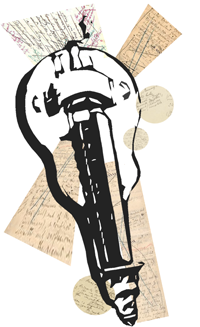I discovered the poet Seamus Heaney in grad school. Being mad for Irish lit, I should have unearthed him sooner, but I hadn’t outgrown Modernism yet, and for the Irish that meant Joyce, Beckett, Yeats, and O’Brien1. At least for me. Then one day in a seminar there Seamus was, full of gorgeous language and dazzling structure and the perfect image for any thought. The sort of author that made me ache because I knew never, in a hundred lifetimes, would I write one poem or paragraph as lovely or timeless. An author beyond envy, because envy conveys a sense that someone has taken a place that could be rightfully yours, and I had no business believing I could ever arrive near Seamus shimmering out there on the horizon.
Being from Northern Ireland, Heaney embodied the complications of politics and the role of the artist and the danger of the wrong word in the wrong place–the sort of thing literary theory at the time went weak in the knees considering. But that never attracted me; Heaney’s ability to take the tiniest detail of routine and existence and place it out among the stars drew me into his work.
As a technical prodigy, Heaney could write in any form, and he helped revive formal structure in poetry, especially the sonnet. He liked to write them in cycles, generally exploring a central theme. In the Glanmore Sonnets, Heaney sounds leaving the violence of Northern Ireland to live in the Irish Republic. The ten sonnets reflect on language, marriage, leaving, art, and loss.
Later in life, Heaney would write another sonnet sequence in honor of his mother called Clearances. Before the sonnets, in an introductory poem, Heaney remembers his mother demonstrating how to split coal for fuel, how she “Taught me between the hammer and the block/To face the music. Teach me now to listen,/To strike it rich behind the linear black.” The ritual of daily life as an incantation to create and forge art worthy as a memorial.
I have always experienced my own mother as an absence. Mental illness has robbed her of the usual relationships we take for granted. Institutions, paranoia, lectures to me about wrongs never suffered, and now a lonely emptiness; she is present but never really here. I wonder how she processes reality, what she thinks of me, how she spends the hours within her mind. She wants to be left to her solitary life, and normally I guiltily oblige. Am I giving her what she truly wants or selfishly what I really want to avoid the awkwardness and pain?
In Sonnet III, Heaney and his mother stay at home to peel potatoes while everyone else goes to Mass. He slyly takes all the tropes of being Irish to transform them into something else:
I was all hers as we peeled potatoes.They broke the silence, let fall one by oneLike solder weeping off the soldering iron:Cold comforts set between us, things to shareGleaming in a bucket of clean water.
When his mother reaches her final moments, he recalls that moment:
So while the parish priest at her bedsideWent hammer and tongs at the prayers for the dyingAnd some were responding and some cryingI remembered her head bent towards my head,Her breath in mine, our fluent dipping knives—Never closer the whole rest of our lives.
For years I could not read that sonnet without tears; not for Heaney’s grief but for my own. I have often wondered what it would mean to have a mother in that sense, of sharing the current of a connection rather than a broken circuit. My own children have given me the pleasure of such connections. But when it comes to the emotional ties to my mother, there exists no language or silence to share; the house is always empty.




